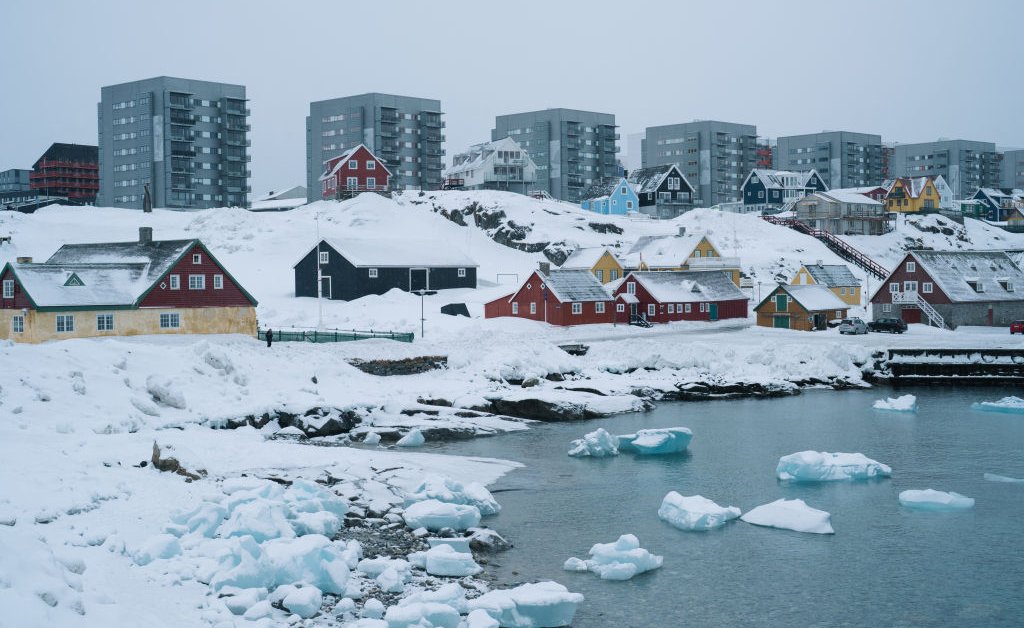Greenland's Melting Ice: Reshaping the Nation's Politics
Editor's Note: The accelerating impacts of climate change on Greenland are dramatically altering the nation's political landscape. This article explores the key developments and implications.
Why This Topic Matters:
Greenland, the world's largest island, is experiencing unprecedented rates of ice melt due to climate change. This isn't just an environmental issue; it's fundamentally reshaping Greenland's political priorities, economy, and international relations. The implications extend far beyond Greenland's borders, affecting global sea levels and geopolitical strategies. This article will examine the key political shifts driven by climate change, analyzing the challenges and opportunities facing this Arctic nation. We'll explore the evolving relationship between Greenland's resource management, its growing autonomy from Denmark, and its international partnerships.
Key Takeaways:
| Aspect | Impact |
|---|---|
| Resource Extraction | Increased interest in mining and other resource extraction, creating economic opportunities and environmental concerns. |
| Geopolitical Influence | Growing global interest in Greenland's strategic location and resources. |
| Self-Governance | Climate change is accelerating Greenland's push for greater autonomy from Denmark. |
| Environmental Protection | Balancing economic development with the need to protect Greenland's fragile environment. |
| International Relations | Greenland forging new alliances and partnerships to address climate change and secure its future. |
1. Climate Change: Reshaping Greenland's Politics
Introduction: Greenland's political landscape is undergoing a seismic shift, driven by the undeniable reality of climate change. The melting ice sheet is not merely an environmental catastrophe; it's a catalyst for political and economic transformation.
Key Aspects: The melting ice sheet is opening up new opportunities for resource extraction, attracting international attention and investment. Simultaneously, it's forcing Greenland to grapple with the existential threats of rising sea levels and the disruption of traditional ways of life.
Detailed Analysis: The accelerated melting is revealing mineral deposits previously inaccessible, leading to a surge in mining interests. This has created a complex political debate, pitting the potential economic benefits against the risks of environmental damage and the preservation of Greenland's unique ecosystem. Furthermore, the strategic importance of Greenland's location – its proximity to major shipping lanes and potential for resource exploitation – is fueling geopolitical competition. Great power rivalry adds another layer of complexity to Greenland’s political decisions.
2. Interactive Elements on Greenland's Political Shift
Introduction: The interplay of economic opportunities, environmental concerns, and geopolitical interests creates a dynamic and complex political landscape in Greenland.
Facets: This includes managing international pressures from nations seeking access to Greenland's resources, balancing economic growth with environmental sustainability, and navigating Greenland's evolving relationship with Denmark. The potential for conflict between environmental preservation and economic development is a central challenge. Further, Greenland must manage its growing international relationships carefully, avoiding over-reliance on any single power.
Summary: The interactive elements highlight the precarious balance Greenland must maintain – striving for economic prosperity while safeguarding its unique environment and preserving its autonomy.
3. Advanced Insights on Greenland's Political Future
Introduction: Understanding the long-term implications of climate change on Greenland's politics requires a nuanced perspective that considers both immediate challenges and future scenarios.
Further Analysis: Experts predict a future where Greenland's political landscape will be further defined by its capacity to manage its newfound resources sustainably, fostering strong international partnerships while maintaining its self-determination. Success will depend on its ability to adapt to rapid changes and develop robust strategies for addressing the multifaceted challenges ahead. The role of indigenous communities and their traditional knowledge in shaping policy will also be crucial.
Closing: Greenland's future is inextricably linked to its ability to navigate the complex interplay of climate change, resource management, and international relations. Its choices will have profound consequences, not only for its own people but also for the global community.
People Also Ask (NLP-Friendly Answers):
Q1: What is Greenland's political status? A: Greenland is an autonomous country within the Kingdom of Denmark, possessing considerable self-governance but with Denmark retaining ultimate responsibility for defense and foreign affairs.
Q2: Why is climate change impacting Greenland's politics? A: Melting ice is opening up new resource extraction opportunities, attracting international interest and altering Greenland's economic priorities. It also creates environmental challenges and necessitates adaptation strategies.
Q3: How can climate change benefit Greenland? A: The melting ice could unlock significant mineral wealth, potentially boosting the Greenlandic economy. New shipping routes may also open up economic opportunities.
Q4: What are the challenges with Greenland's political situation? A: Balancing economic development with environmental protection, navigating geopolitical competition for resources, and maintaining its autonomy within the Kingdom of Denmark are key challenges.
Q5: How to get involved in supporting Greenland? A: Support organizations working on sustainable development in Greenland, advocate for policies that address climate change, and educate yourself and others about the challenges facing the region.
Practical Tips for Understanding Greenland's Political Shift:
Introduction: Staying informed about Greenland's political developments is crucial for understanding the impact of climate change on the Arctic and the world.
Tips:
- Follow reputable news sources covering Arctic affairs.
- Research organizations working on climate change adaptation and sustainable development in Greenland.
- Engage with academic research on Greenland's political and environmental situation.
- Learn about the perspectives of Greenlandic communities and their leaders.
- Support initiatives that promote sustainable development and environmental protection in Greenland.
Summary: Greenland's political trajectory is fundamentally intertwined with the effects of climate change. Navigating the opportunities and challenges presented by this transformation will define Greenland's future and impact the global community.
Call to Action: Ready to dive deeper? Subscribe for more insights on Greenland's evolving political landscape and the global implications of climate change in the Arctic.

